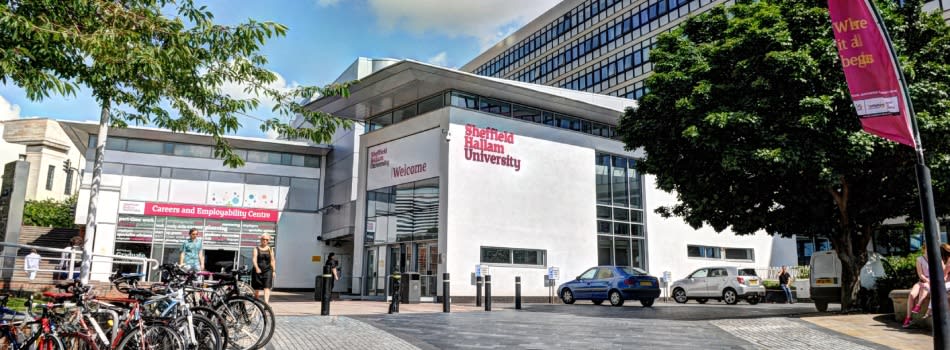The Industry and Innovation Research Institute (I2Ri) draws on talents, expertise and facilities across Sheffield Hallam University. The vision is to be the leading provider of applied research excellence delivering materials, computing, science and engineering innovations meeting the development needs of industry.
This project is part of a Graduate Teaching Assistants scheme, in which the successful applicant will undertake certain teaching duties associated with the student experience, in addition to working towards a PhD qualification. They contribute to up to 180 hours of support for research or teaching related activity per academic year. This activity forms part of the scholarship award and there is no additional payment.
PhD Research Topic
Collecting objects spread in an environment is key to real-world applications such as autonomous precision agriculture, search and rescue operations, garbage collection, and mining in remote areas (e.g. ocean or space). In these applications, objects are clustered at unknown locations so must be found and then transported to a central depot. The goal of resource collection systems will be to maximise the number of collected objects per unit of time.
Robot swarms are considered one of the most promising resource collection systems. Robot swarms consist of many simple robots that must collaborate to solve their tasks. Like some ants, robot swarms can coordinate their collections using stigmergy. Robots that discover clustered objects mark their way back to the depot so that other robots can follow those marks to find the objects faster. This type of coordination increases the collection rate in small swarms but makes the collection inefficient when the number of robots increases. In large swarms, robots attracted by the stigmergic marks can reach high numbers, leading to traffic congestion and thus longer transport times.
Inspired by the behaviour of some ant species, this project aims to build artificial intelligence (AI) that allows robot swarms of various sizes to regulate the amount of collecting robots to cope with traffic congestion problems without resorting to complex software and hardware capabilities. In the investigated AI, individual robots will rely on simple sensory capabilities to detect traffic congestion, then perform simple actions that lead the swarm to clear congested areas.
This project will suit candidates with a background in robotics or computer science, experience in C/C++ and/or Python programming, and strong mathematical foundations.
Eligibility
Applicants should hold a 1st or 2:1 Honours degree in a related discipline. A Master’s degree in a related area is desirable. We are offering this as a full-time PhD scholarship. We welcome applications from all candidates irrespective of age, pregnancy and maternity, disability, gender, gender identity, sexual orientation, race, religion or belief, or marital or civil partnership status.
Information for International applicants
We have a mandatory English language requirement of IELTS 7 with a score of at least 6.5 in all test areas, or equivalent language qualification, for all applicants to whom English is not their first language. This qualification should have been taken within the last two years.
Further information about equivalent English language qualifications can be found here
For a successful international candidate, this scholarship will cover the full international tuition fee.
How to apply
We strongly recommend you contact a member of the supervisory team before making an application.
To apply for this GTA scholarship, please use our online application form.
You must ensure that you upload:
1. A letter of intent (1 page maximum) detailing why you are interested in the project and how your experience and background can make you the best candidate for this project. Please also identify potential areas you can contribute to within the teaching departments associated with this project. (Please upload this in place of a proposal)
2. Two letters of reference, one must be from an academic and both must be dated within the last 2 years (if you are not able to collate these by the application deadline please include referee details and these can follow afterwards).
3. Copy of your highest degree certificate (if available).
4. Non-UK applicants must submit a copy of their passport.
5. Non-UK applicants should preferentially submit IELTs results (or equivalent) taken in the last two years with their application, later submission may be considered, but no unconditional scholarship offer will be provided without sufficient English language evidence.
The closing date for all applications is 11:59pm (UK time) 3 Dec 2023. Ensure that applications are submitted before the deadline as late applications will not be accepted.
Interviews are scheduled for: TBC
Proposed start date: May 2024
Further information about our research degrees can be found here
An Overview of the GTA scheme can be found here
The Conditions of the Award can be found here

 Continue with Facebook
Continue with Facebook




